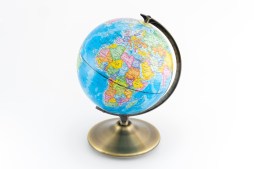Understanding the Role of Destiny in Global Cultural Beliefs
The concept of destiny is a fascinating and complex idea that has been explored and interpreted across various cultures throughout history. In many societies, the belief in destiny plays a significant role in shaping individuals’ lives and guiding their actions. From ancient civilizations to modern-day communities, the notion of destiny has influenced cultural traditions, religious practices, and societal norms. In this article, we will delve into the different interpretations and understandings of destiny across various cultures.
Destiny as Predetermined Fate
In some cultures, destiny is seen as a predetermined fate that is beyond an individual’s control. These societies believe that every person is born with a specific destiny or life path that has been predetermined by supernatural forces or higher powers. For example, in ancient Greek mythology, the Moirai (also known as the Fates) were believed to be three goddesses who controlled human destinies by spinning the thread of life for each individual. This concept can also be found in many Eastern philosophies such as Hinduism and Buddhism, where karma plays a crucial role in determining one’s destiny.
Destiny as Personal Agency
Contrasting with the idea of predetermined fate, other cultures emphasize personal agency when it comes to shaping one’s own destiny. These societies believe that individuals have the power to influence their future through their choices and actions. For instance, in Western cultures like the United States, there is often an emphasis on individualism and self-determination. People are encouraged to set goals, work hard, and make decisions that will lead them towards their desired outcomes.
Cultural Interpretations of Destiny
While there are common threads connecting different cultural beliefs about destiny, each society brings its unique interpretations to this concept. In Chinese culture, for example, there is a belief in “ming,” which translates to “life’s mandate” or “destiny.” Chinese people often consult fortune tellers or study the principles of feng shui to gain insights into their destiny and make decisions accordingly. In African cultures, destiny is often tied to ancestral spirits and the idea that individuals are connected to their ancestors’ destinies. Native American tribes also have their own interpretations of destiny, with many believing that individuals have a specific purpose or role to fulfill within their community.
The Influence of Destiny on Cultural Practices
Destiny not only shapes individuals’ lives in various cultures but also influences cultural practices and traditions. For instance, in some societies, marriage partners are chosen based on astrological compatibility or predictions about future prosperity. In ancient Rome, leaders would consult auguries (interpreters of bird behavior) before making important decisions, believing that the signs from nature could reveal their destined path. Similarly, religious rituals and ceremonies often center around the concept of destiny, seeking guidance from higher powers and seeking blessings for a favorable outcome.
In conclusion, understanding the role of destiny in global cultural beliefs reveals the diverse ways in which different societies interpret and incorporate this concept into their lives. Whether seen as predetermined fate or personal agency, destiny holds great significance for individuals as they navigate through life’s journey. By exploring these various interpretations across cultures, we can gain a deeper appreciation for the rich tapestry of human beliefs and experiences surrounding this universal concept.
This text was generated using a large language model, and select text has been reviewed and moderated for purposes such as readability.











